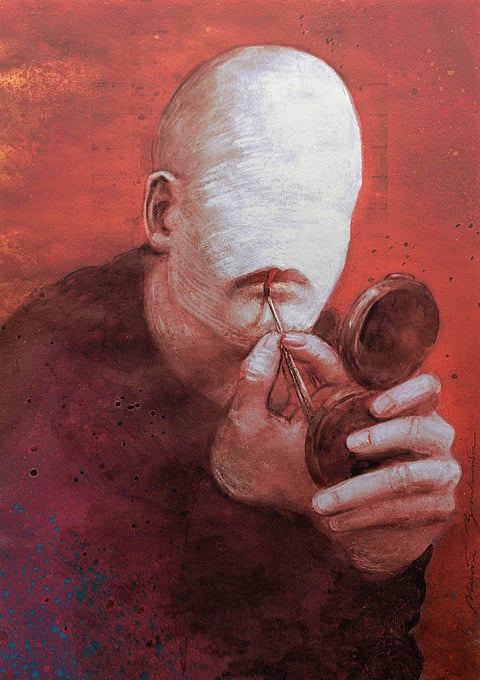Keeper of secrets
The cupboard was open. The handbag was on the middle shelf, at eye level. A purse, peeped out from the bag – silver flowers and golden leaves on a silken and violet skin. I felt it beckoning me, daring me – and I am not one to shy away from a dare. When I pulled it out of the bag, its bloated softness filled the cup of my palm. Its clasp opened willingly at the touch of my fingers.
The siren from the factory blared, startling me. It was 3 pm, Ikkaka, my elder brother, must have lifted his foot from the pedal at that moment. The loom would slow down now, little by little, taking its time. Soon a sea of blue-uniformed men and women would stream out of the gates of the mill, keen to get home after their shift. Further away, my little brother and sister must have jumped up from their seats in their classrooms, eager to join the army of children rushing out of school. If my older sister had been at home and not at her mother-in-law's, she would have been standing at the gates of the creche, waiting for her toddler son to come out. And Habib, he might be on his way to the beach where I am supposed to meet him later today. Habib… the unexpected gift from my father, it would only be an hour more until we meet.

